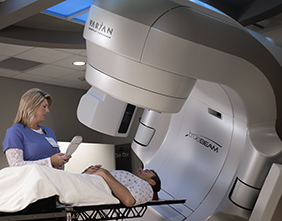Lima Memorial Health Focus: “If It Ain’t Broke, at Least Maintain It”
posted on: 9/5/2017 4:32:12 PM
Health & Fitness Guest Columnist
Michael Kerrigan, Certified Nurse Practitioner
Lima Memorial Physicians
Lima Memorial Internal Medicine & Family Healthcare
“If it ain’t broke, don’t fix it.” Most of us would agree with that saying. However, if we are not paying attention, we may not realize it is broken. The ‘it’ I am talking about in this case is your health. The “brokenness” could be high blood pressure that you don’t feel, diabetes that doesn’t hurt, high cholesterol that is not currently causing any trouble or perhaps that non-healing skin wound. Seeing your primary care provider can help you identify what is or may soon be “broken.”
You might ask, “why should I go to the doctor if I am feeling well or not broken?” and “why can’t I just check my blood pressure or blood sugar at home?” You should. Taking responsibility for your own health is critical. However, like with most things, it is helpful to get some outside objective help to give feedback and encouragement. Making an appointment with your primary care provider sets aside a specific time in your busy life to focus on assessing, maintaining, improving and even fixing your health.

Let me encourage you to take some time now to do a personal assessment of your current health, physical and mental. Get a paper and pencil. Start off with the obvious. What is not feeling right and what do you already know is wrong? If you are feeling great and nothing is wrong, are there areas you want to improve or maintain? Write it down. What about your habits? Maybe they are not causing you any problems now but perhaps could in the future. Write down worrisome things from your family history. Maybe you don’t smoke, drink, take drugs or overeat, but maybe you are not sleeping enough, dealing with stress properly, exercising adequately, or managing your relationships properly. Perhaps you are depressed and not really wanting to admit it. Write these things down; bring them with you to your visit. Maybe you won’t get to all of them, but you can prioritize. These are all things, once identified, that can be discussed with your primary care provider who will help you and hold you accountable for your health.
This may sound simplistic, and in many ways it is. No fancy bells, technology or whistles. Yet it is often the simple things we don’t do. You need to do a basic evaluation of your health, by yourself or with assistance. Take charge of your health. Get the help you need. A good provider will help you help yourself. They will listen, encourage and treat as needed. The unfortunate reality for primary providers is that time is limited, so be prepared, be intentional and be brief. You may be surprised at the response you get from your primary provider when they see you taking a more active role in your health.
Keep in mind what your provider is offering. There may be some things they don’t or can’t do and you may need to see a specialist, or alternative health care professional. I often use the analogy “you won’t get a Burger King Whopper if you go into McDonalds to order it.” Eating too much fast food is also something to discuss with your doctor.
I mostly wanted to encourage you to begin to or continue to take care of your health, starting with your basic evaluation. Do it. We only have one life to live and enjoy. Not everything can be fixed, but there are many things we break ourselves that don’t have to be broken, or things we are not aware of that could be fixed. See your primary care provider to help you. So at least if you “ain’t wanting to fix it,” you can prevent breaking it in the first place.
Originally published in The Lima News Health and Fitness section.
Website





